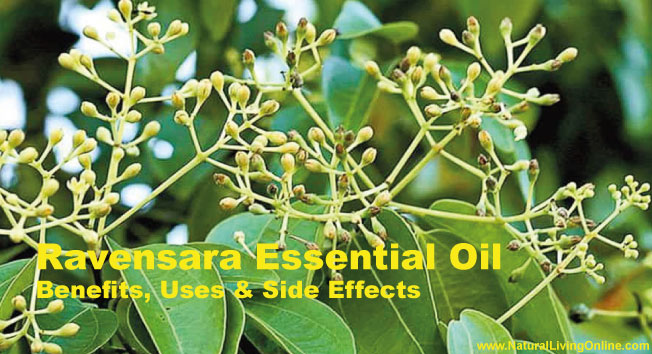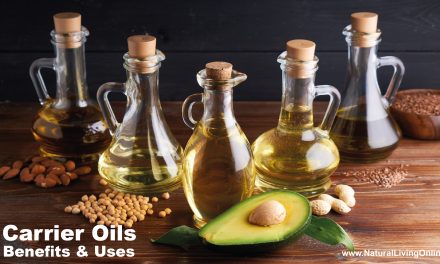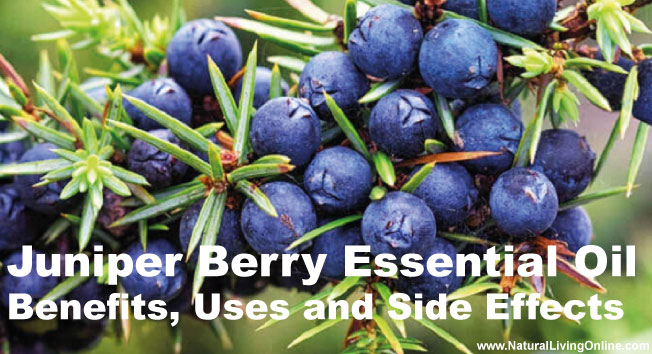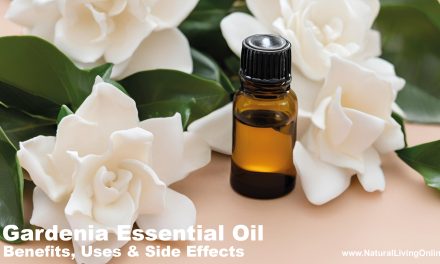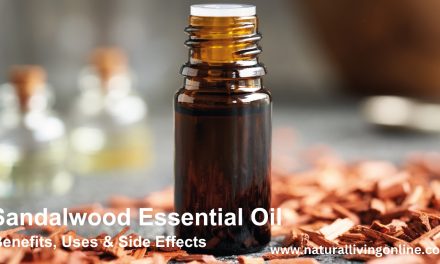Ravensara essential oil is extracted from the Ravensara tree, which is native to Madagascar. The oil has a fresh, camphoraceous aroma and is said to be beneficial for a wide range of conditions, including colds, flu, respiratory infections and skin diseases. Ravensara oil is also used as a massage oil and in aromatherapy. The most common use for Ravensara essential oil is for the treatment of colds, flu and respiratory infections. Ravensara oil is added to baths or diffusers to help clear congestion and relieve symptoms. Ravensara oil is also used in massage oils and lotions to help ease muscle aches and pains.
Essential Oil Profile / Monograph
Botanical Name: Ravensara aromatica
Common Names: Ravensara, Ravensara tree
Plant Family: Lauraceae
Countries of origin: Madagascar
Extraction Method: Steam distillation
Parts Used: leaves and twigs
Essential Oil smell: camphoraceous, herbaceous, spicy
Essential Oil Color: Pale yellow to yellow green
Viscosity: Medium
Perfumery Note: Middle
Strength of Aroma: Strong
Blends Well With: Basil, Bergamot, black pepper, cardamom, cedarwood, clary sage, eucalyptus, geranium, ginger, grapefruit, juniper berry, lemon, lemongrass, marjoram, nutmeg, oregano, palmarosa, peppermint, pine, rosemary, thyme
Therapeutic Properties: Antimicrobial, anti-inflammatory, antitussive (relieves cough), expectorant (expels mucus), relaxing
Uses: Aromatherapy, massage, skin care
Contraindications: Ravensara should not be used by pregnant or nursing women. Ravensara may irritate the skin if used in high concentrations.
Side Effects: Ravensara essential oil is generally safe for most people. However, the oil can cause skin irritation in some people. Ravensara oil should always be diluted with a carrier oil before being applied to the skin. The oil should also be used with caution if you are pregnant or breastfeeding. If you have any medical conditions, you should consult your doctor before using Ravensara essential oil.
Chemical Constituents:
1,8-cineole (eucalyptol) (26.4-47.0%), α-terpineol (8.6-22.0%), sabinene (1.4-11.4%), β-terpineol (3.0-6.0%), α-terpinyl acetate (2.2-5.8%), α-pinene (1.6-5.2%), limonene (0.8-4.0%), α-terpinene (0.8-2.4%), α-humulene (0.8-3.6%), β-caryophyllene (trace-3.0%)
What is Ravensara?
Ravensara is an evergreen tree that is native to Madagascar. The tree grows to a height of 20-30 feet and has fragrant, leathery leaves. The Ravensara tree is a member of the laurel family and is closely related to the cinnamon tree. The essential oil is extracted from the leaves and twigs of the tree through steam distillation.
Benefits
Ravensara essential oil has a wide range of therapeutic benefits. The oil is said to be antiviral, antibacterial, antifungal and anti-inflammatory. Ravensara essential oil is also used as a natural insecticide. The most common use for Ravensara essential oil is for the treatment of colds, flu and respiratory infections. Ravensara oil is added to baths or diffusers to help clear congestion and relieve symptoms. Ravensara oil is also used in massage oils and lotions to help ease muscle aches and pains.
Findings indicate that inhalation of certain aromatherapy oil (which included Ravensara) helps relieve perennial allergic rhinitis (PAR) symptoms, improve rhinitis-specific quality of life, and reduce fatigue in patients with PAR.
Study Source
Uses
Ravensara essential oil can be used in a variety of ways. The oil can be added to diffusers and humidifiers to help clear congestion and relieve cold and flu symptoms. Ravensara oil can also be added to bath water or used in massage oils and lotions.
Historical use of Ravensara as a herbal medicine
Ravensara has a long history of use as a herbal medicine. The oil was used by the Ancient Greeks to treat respiratory infections and colds. Ravensara essential oil was also used by the Romans to treat fevers and headaches. Ravensara oil fell out of favor as a medicinal herb during the Middle Ages. However, the oil regained popularity in the 19th century as a natural treatment for respiratory infections.
Ravensara Essential Oil Topical use
Ravensara essential oil can be used topically to help relieve muscle aches and pains. The oil can also be used to treat cold sores, insect bites and skin infections. Ravensara oil should be diluted with a carrier oil before being applied to the skin.
Ravensara Essential Oil benefits for skin
Ravensara essential oil is beneficial for the skin in a number of ways. The oil is said to be antimicrobial, anti-inflammatory and antioxidant. These properties make Ravensara oil an effective treatment for cold sores, acne, eczema and other skin conditions. Ravensara essential oil is also said to help reduce the appearance of scars and stretch marks.
Ravensara Essential Oil benefits for hair
Ravensara essential oil can also be used to benefit the hair. The oil is said to be antimicrobial, antifungal and anti-inflammatory. These properties make Ravensara oil an effective treatment for dandruff, scalp infections and hair loss. Ravensara essential oil is also said to help promote hair growth.
Ravensara Essential Oil Aromatherapy benefits
Ravensara essential oil has a wide range of aromatherapy benefits. The oil is said to be soothing and calming. Ravensara oil is also said to help relieve stress, anxiety and depression. The oil can be used in diffusers, humidifiers and massage oils.
Diffuser blends for aromatherapy with Ravensara Oil
1. Lavender and Ravensara: This blend is perfect for relaxation and promoting sleep.
2. Peppermint and Ravensara: This blend is invigorating and perfect for when you need a pick-me-up.
3. Rosemary and Ravensara: This blend is perfect for stimulating the mind and promoting concentration.
4. Bergamot and Ravensara: This blend is perfect for relieving stress and promoting calm.
5. Chamomile and Ravensara: This blend is perfect for relaxation and promoting sleep.
6. Jasmine and Ravensara: This blend is perfect for promoting romance and sensuality.
7. Cypress and Ravensara: This blend is perfect for stimulating circulation and promotes healthy skin.
DIY recipes with Ravensara Essential Oil
Ravensara diffuser blend for cold and flu
-3 drops Ravensara essential oil
-2 drops Peppermint essential oil
-2 drops Eucalyptus essential oil
Add all ingredients to a diffuser and enjoy.
Ravensara massage oil for muscle aches and pains
-2 drops Ravensara essential oil
-1 drop Peppermint essential oil
-1 drop Basil essential oil
-1 tablespoon carrier oil
Mix all ingredients together and massage into sore muscles.
Ravensara bath bomb for relaxation
-2 drops Ravensara essential oil
-1 drop Lavender essential oil
-1 drop Chamomile essential oil
-1 cup baking soda
-1/2 cup citric acid
-1/2 cup cornstarch
Mix all ingredients together and pack into a mold. Allow to harden overnight. Add to a warm bath and enjoy.
Ravensara sugar scrub for soft and glowing skin
-2 drops Ravensara essential oil
-1 drop Mandarin essential oil
-1 tablespoon honey
-1 cup sugar
Mix all ingredients together and massage into wet skin. Rinse off with warm water. Pat dry.
Ravensara room spray for a fresh and clean scent
-2 drops Ravensara essential oil
-1 drop Lemongrass essential oil
-1 drop Tea Tree essential oil
-1 cup water
Mix all ingredients together and transfer to a spray bottle. Mist into the air as desired.
Frequently Asked Questions
Who should not use Ravensara oil?
Pregnant and breastfeeding women should not use Ravensara oil. The oil can also cause skin irritation in some people, so it should be used with caution. If you have any medical conditions, you should consult your doctor before using Ravensara essential oil.
Does Ravensara oil interact with any medicine?
There is no known interaction between Ravensara oil and any medicine. However, as with any essential oil, it is always best to consult your doctor before using Ravensara oil.
Is it OK to breathe in Ravensara oil?
Yes, it is safe to inhale Ravensara essential oil. However, the oil can cause skin irritation in some people, so it should be used with caution. If you have any medical conditions, you should consult your doctor before using Ravensara essential oil.
Can I ingest Ravensara oil?
No, you should not ingest Ravensara essential oil.
Does Ravensara oil raise blood pressure?
No, Ravensara oil does not raise blood pressure. The oil can cause skin irritation in some people, so it should be used with caution.
Does Ravensara oil repel insects?
Yes, Ravensara essential oil can help to repel insects.
Can I use Ravensara oil on face?
Yes, you can use Ravensara essential oil on your face. However, the oil can cause skin irritation in some people, so it should be used with caution.
Sources:
This website does not provide medical advice.
All information provided on this website, and on associated social media networks, including but not limited to texts, images, and numbers are for general information purpose only. It is not intended as medical advice and it does not include all possible precautions, side effects, or interactions that may occur. Neither NaturalLivingOnline.com nor its author/founder take responsibility for how you use this information. Statements contained on NaturalLivingOnline.com have not been evaluated by the FDA. You should conduct thorough research via multiple sources and consult your physician or qualified doctor before using any essential oil or herbal remedy. Information on NaturalLivingOnline.com must not be relied upon for medical, legal, financial or other decisions.

